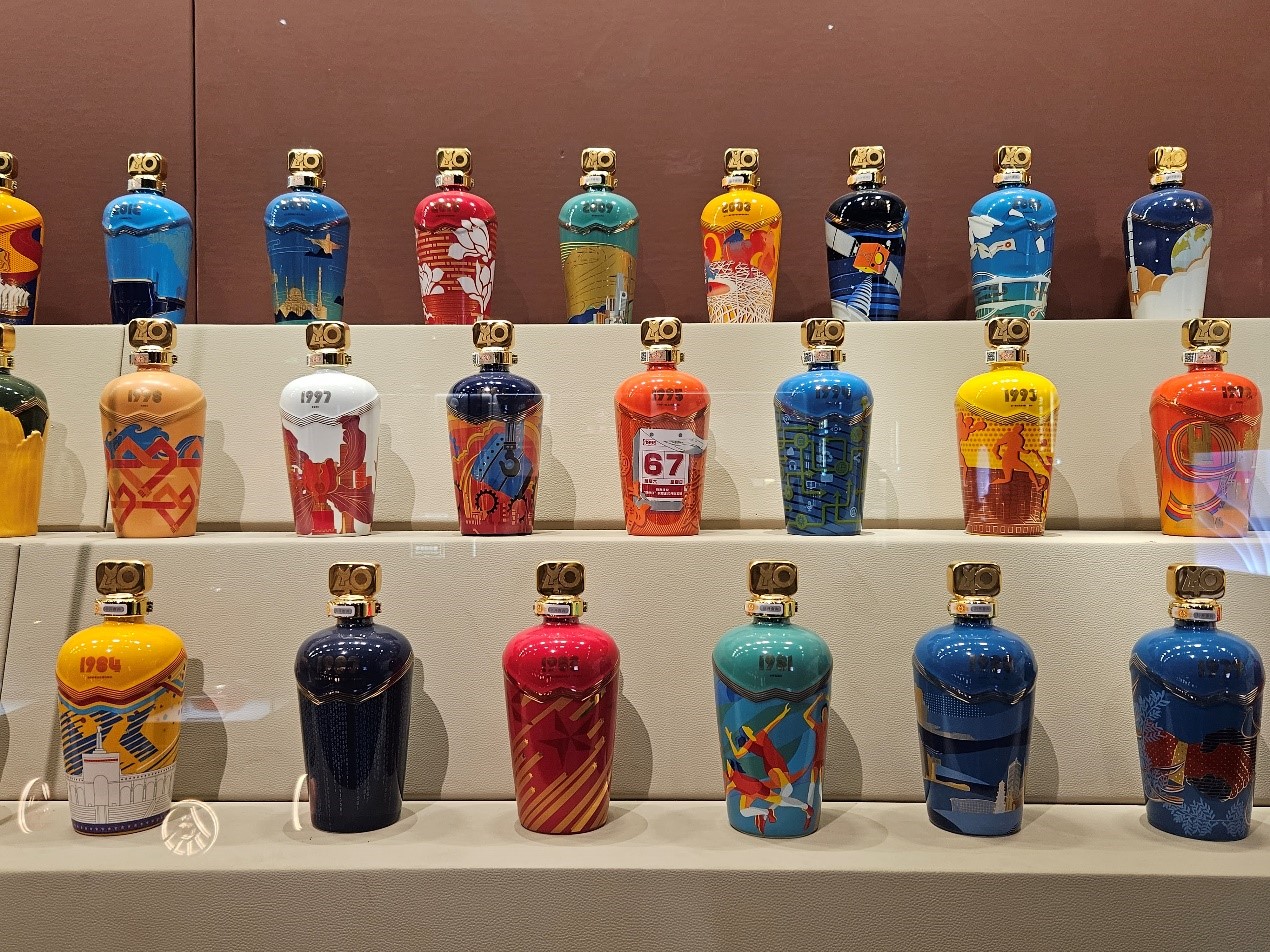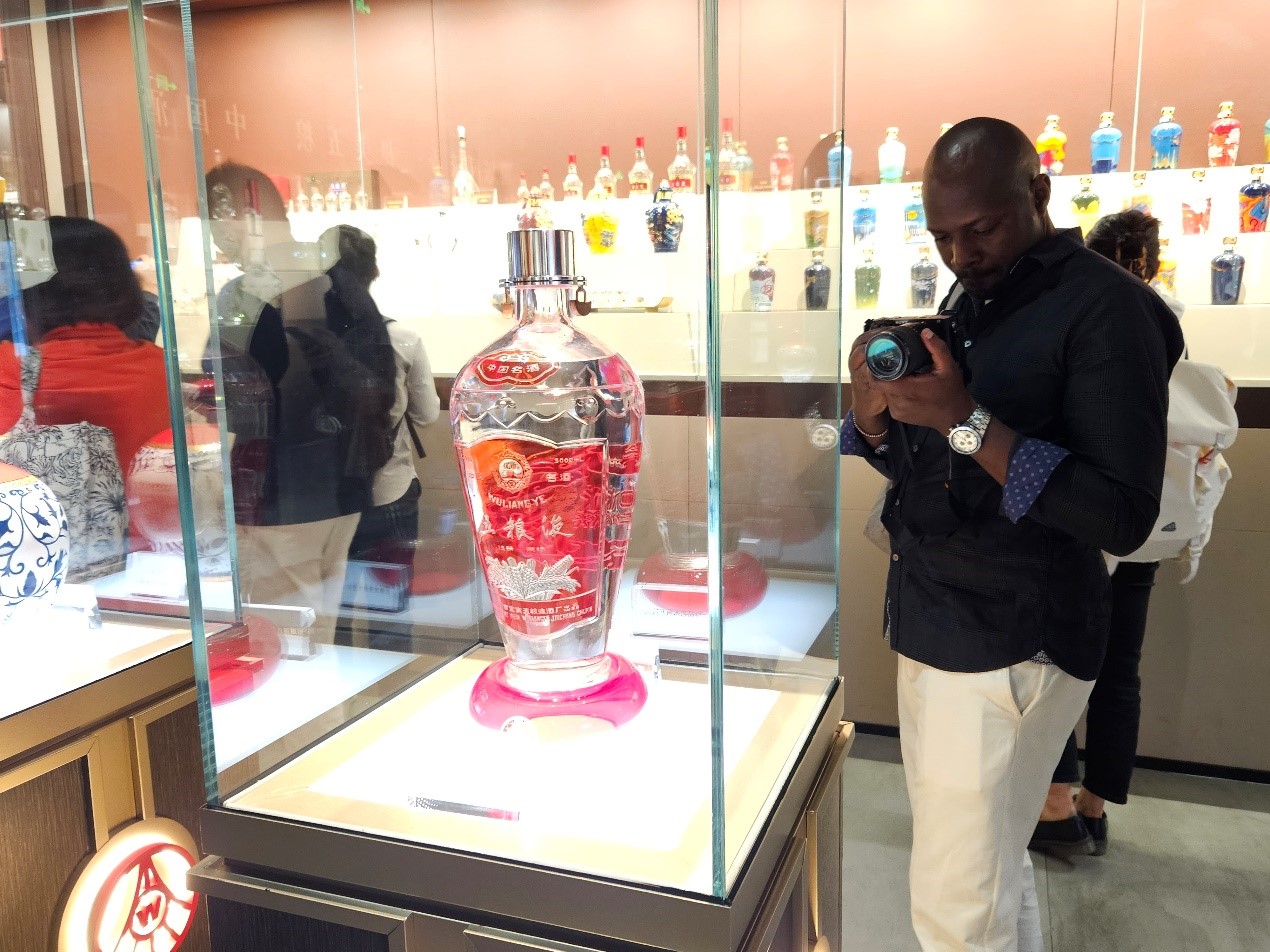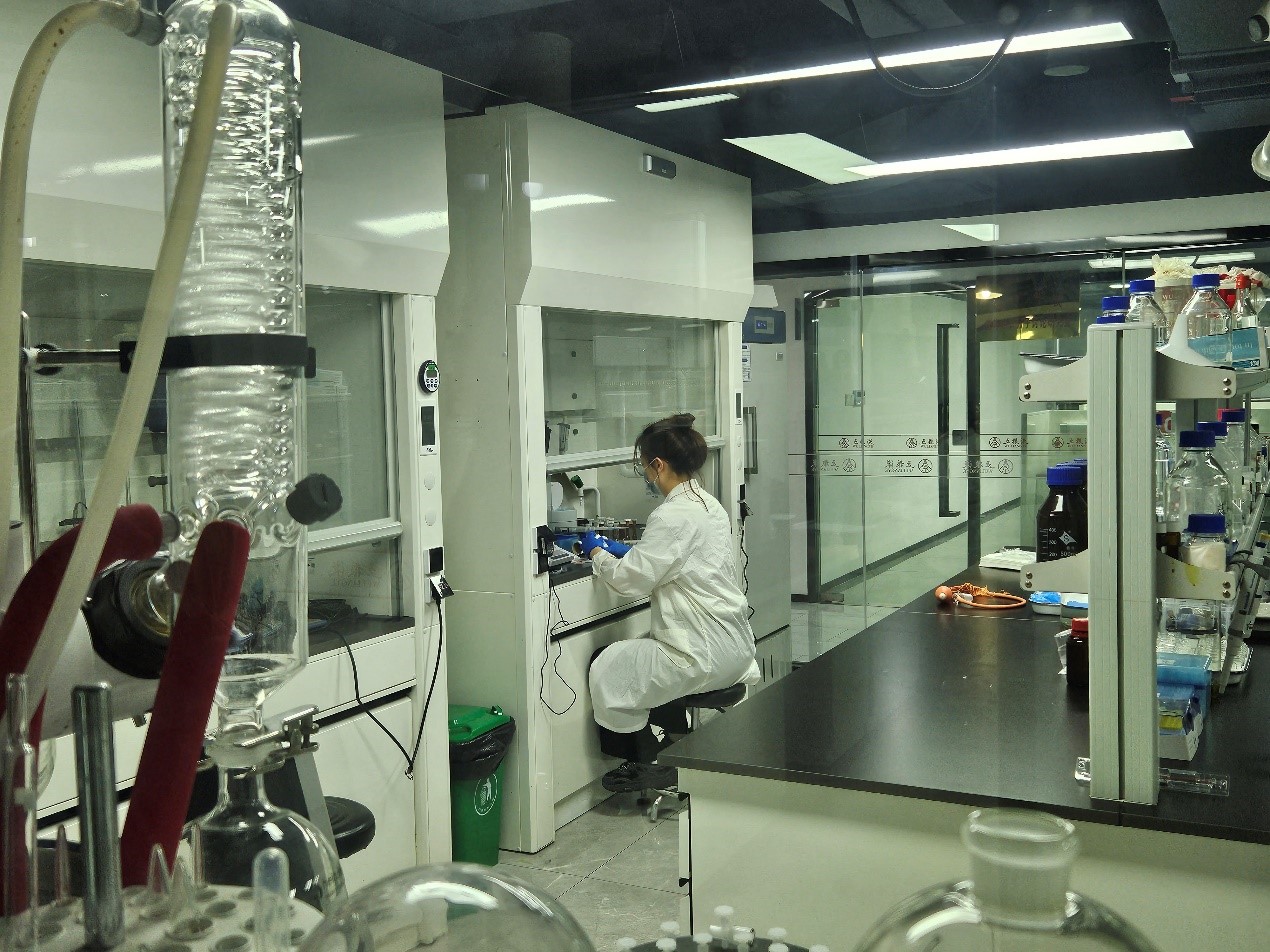Wuliangye, a renowned leading liquor producer in China, on Monday, captivated a group of foreign journalists with its unique aroma and rich history, leaving a lasting impression.

A glimpse of the Wuliangye Wine Culture Expo, October 23, 2023. (Photo: Liang Xiaojian)
With its headquarters in Yibin, a city in Southwest China's Sichuan Province, Wuliangye benefits from the region's exceptional climate. Zeng Linxiang, a guide at the Wuliangye Wine Culture Expo, highlighted the remarkable characteristics of Yibin that make it an ideal location for baijiu production. Yibin enjoys a frost-free and snow-free climate, sufficient precipitation, and abundant biodiversity, creating a perfect habitat for the microorganisms crucial to Baijiu-making. Yibin's suitability for this art form is now internationally acknowledged, as both UNESCO and UNFAO have accredited it as "the most suitable area for the production of high-quality pure distilled liquor in the same latitude on earth."
Chinese baijiu is among the world's top six distilled spirits, alongside brandy, whiskey, vodka, rum, and gin. However, the spirit is fermented and distilled in a natural multi-strain solid state, unlike the traditional concept of Western distilled spirits, explains Zhao Dong, chief technical advisor at Wuliangye.

Exploring the distinctive aroma of Wuliangye Baijiu, October 23, 2023. (Photo: Liang Xiaojian)
As one of the quintessential elements of Chinese culture, the brewing of baijiu enjoys a long history dating back to ancient times. With time-honored crafting methods and recipes, Wuliangye baijiu ingredients include five grains of sorghum, rice, glutinous rice, wheat, and corn. The multi-grain solid fermentation process has been passed down for thousands of years, dating back to the Tang Dynasty (618-907 A.D.).
The flavor compounds in Wuliangye baijiu exhibit a remarkable level of complexity. In recent years, various state-of-the-art analytical equipment has been introduced to investigate the characteristic flavor compounds present throughout the entire process of creating Wuliangye baijiu. These include studying the flavors generated during raw material cooking, fermented grains undergoing fermentation, pit mud utilization, and pottery jar aging.
Zhao explains that Yibin's unique geography has created a wealth of microorganisms, which bring out unique aromas while fermenting the grains. "It can even be said that it's not people who make Chinese baijiu; it's microorganisms that make baijiu," he states. Despite the company's recent expansion in capacity through microbial analysis, the production base of Wuliangye remains exclusive to Yibin.

Unveiling the secrets of Wuliangye's Technological Research Center, October 23, 2023. (Photo: Liang Xiaojian)
Branko Zujovic, a Serbian journalist, was amazed by Wuliangye baijiu's strong and unique aroma. He hopes Chinese baijiu will be marketed to more countries. "You can find Chinese baijiu in city areas and Chinese markets in Serbia, but not many Serbians come to buy baijiu," Zujovic observes, adding, "So, you should explain what Chinese baijiu is and how it is different than the usual ones."
Zujovic also highlighted the cultural connotation of baijiu. As China's liquor producers, like Wuliangye, try to broaden overseas markets, he believes more people across the world will soon know about Chinese wine culture.
"Wine can promote people-to-people ties," he says.
(Coordination: Li Fang; Planning: Shi Pengfei; Moderation: Chen Zhenkai)


